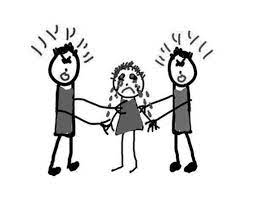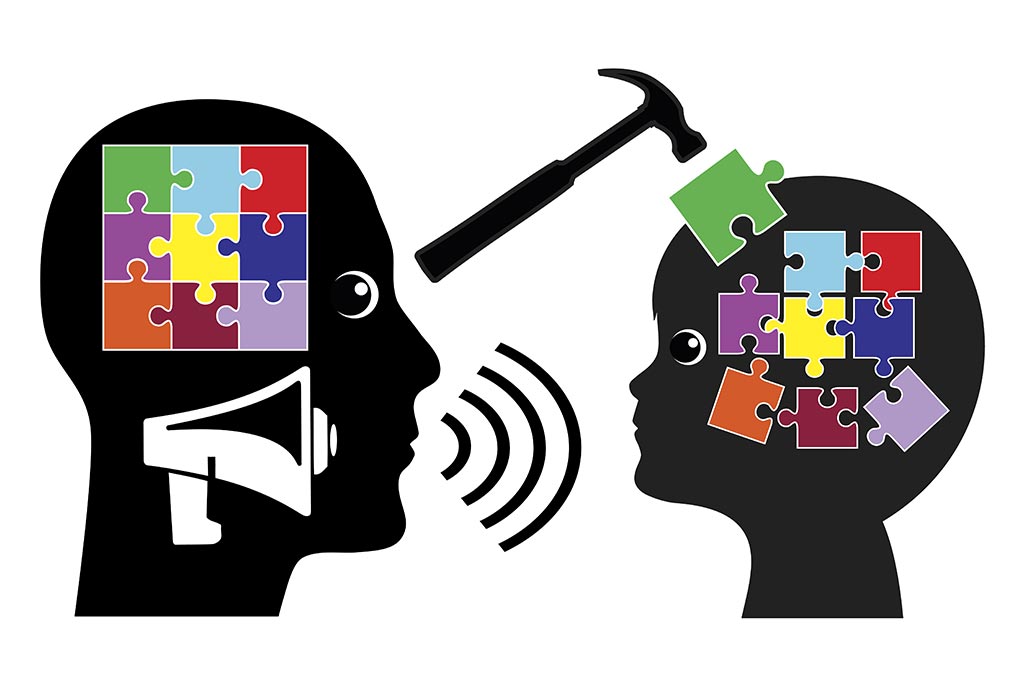So, you’re about to be a parent. Congratulations! This is a good time in your life. But there are things that you need to know about. One of these things is called parental enmeshment. Enmeshment happens when parents become too involved in their child’s life. This can happen when the parents and child cannot make decisions together. This can have serious consequences for the child’s development and future relationships. In this article, we will discuss all the dangers of parental enmeshment and how to avoid becoming a victim yourself!
Contents
- 1 What Is Parental Enmeshment?
- 1.1 Types Of Parental Enmeshment
- 1.2 Dangers Of Parental Enmeshment
- 1.3 Objectives of Parental Enmeshment on Children
- 1.4 Negative Impact Of Parental Enmeshment
- 1.5 How to Avoid Becoming a Victim of Parental Enmeshment?
- 1.6 Therapy Options
- 1.7 Self Help Strategies
- 1.8 Helping Someone Who Is Dealing With Parental Enmeshment
- 2 Conclusion
- 3 A Word From Therapy Mantra
What Is Parental Enmeshment?

Parental enmeshment is when parents are overly involved in each other’s lives. This creates problems for their children. Enmeshed parents are so closely linked that they can’t function without each other. This often results in chaos within the family unit.
Types Of Parental Enmeshment
There are three types of parental enmeshment:
- Co-dependent parents are those who cannot make decisions without the other person. They rely on each other for emotional support and guidance.
- Intrusive parents are overly involved in their children’s lives to the point where it becomes a burden. They want to know everything their children are doing and often cross boundaries.
- Protective parents are those who try to protect their children from the world. They don’t want them to make any mistakes and often interfere in their lives.
Dangers Of Parental Enmeshment

There are many dangers of parental enmeshment. When parents are too involved in each other’s lives, it can have negative consequences for their children. Some of these dangers include:
- Children will not learn how to make decisions on their own and will be dependent on others later in life. When parents are always making decisions for their children, the children will not learn how to make decisions on their own. This can lead to problems when they are adults and have to make important decisions. They may not know how to do this because they never learned how in childhood.
- The child will not develop a sense of self. One of the most important things a child needs is to develop a sense of self. This happens when they learn who they are and what they want in life. When parents are always making decisions for their children, the child will not learn how to do this. They will rely on others to tell them what to do and this can lead to problems later in life.
- The child will have difficulty forming relationships. One of the consequences of not having a sense of self is difficulty forming relationships. This is because the child will not know what they want in a relationship and will be looking for someone to fill that role. They may also be attracted to people who are not good for them because they want someone to take care of them.
- They will be more likely to experience problems with addiction and mental health issues. One of the dangers of not having a sense of self is that the child may turn to drugs or alcohol to fill that void. They may also experience mental health issues such as depression, anxiety, or bipolar disorder.
- The child will be more likely to engage in risky behavior. When children do not have a sense of self, they are more likely to engage in risky behavior. This is because they are looking for someone to take care of them and make them feel safe. They may engage in risky behavior such as drug use, alcohol abuse, or reckless driving.
- They may struggle in school or at work because they never learned how to cope with failure. When children do not have a sense of self, they often struggle in school or at work. This is because they never learned how to cope with failure. They always had someone there to help them and make them feel okay. When they are faced with failure, they do not know how to handle it.
Objectives of Parental Enmeshment on Children
There are three main objectives of parental enmeshment on children:
- To make the child feel responsible for the emotional well-being of the parents: The child is constantly pulled into the emotional turmoil of the parents’ relationship. They are made to feel like it’s their responsibility to make sure mom and dad are okay. This can be very damaging to a child’s psyche. It can leave them feeling burdened and unimportant.
- To maintain control over the child: Enmeshed parents often try to control their children through fear or guilt. They want the child to always do what they say, without question. This can lead to a lot of resentment and rebellion in the child.
- To avoid intimacy: Intimacy is scary for enmeshed parents. It means having to deal with their own issues head-on. So, they push all of their problems onto their children. This leaves the child feeling overwhelmed and unsupported.
Negative Impact Of Parental Enmeshment

The negative impacts of parental enmeshment are vast. The child can experience:
- Low self-esteem: They feel like they can’t do anything right. They constantly compare themselves to their peers and find that they come up short.
- Feelings of isolation and loneliness: They don’t have anyone they can truly confide in. They feel like they’re stuck in the middle of this crazy mess and no one understands them.
- Anxiety and depression: The child feels like they’re constantly walking on eggshells. They don’t know what mood their parents will be in today and it’s exhausting. This can lead to a lifetime of mood disorders.
- Relationship problems: They don’t know how to have healthy relationships. They either become enmeshed themselves, or they push people away because they’re scared of getting hurt.
- Addictive behaviors: The child tries to find ways to cope with the stress of their home life. This can lead to alcohol abuse, drug addiction, eating disorders, etc.
- Resentment and anger towards the parents: The child feels like they’re the only one who is trying to make things work. They feel bitter and resentful towards their parents for making their lives so difficult.
- Confusion about their identity: They don’t know who they are or what they want in life. They’ve been molded into someone that their parents want them to be, not who they want to be.
- Difficulty forming healthy relationships as an adult: They don’t know how to have a healthy relationship because they’ve never seen one. They often get into codependent relationships or they push people away because they’re scared of getting hurt.
How to Avoid Becoming a Victim of Parental Enmeshment?
There are several things you can do to avoid becoming a victim of parental enmeshment:
- Set boundaries: It’s important for both parents to maintain healthy boundaries with each other. This means having separate lives outside of the family unit. It also means not meddling in each other’s business. If your parents can’t respect your boundaries, it’s time to end the relationship altogether.
- Talk about your feelings: Parents should be open and honest with their children about what’s going on in their lives. This includes discussing any problems they’re having with their partner. It allows the child to feel like they’re a part of the family and that their opinion matters.
- Get therapy: If you’re feeling overwhelmed by your parents’ enmeshment, it’s important to seek professional help. A therapist can provide you with coping mechanisms and support. They can also help you communicate better with your parents.
Parental enmeshment is a very real problem for many children. It’s important to be aware of the dangers so that you can avoid becoming a victim yourself. If you or someone you know is in a situation like this, please seek help right away. There are people out there who can assist you in finding a way out.
Therapy Options

If you are seeking help for parental enmeshment, there are a few therapy options that may be available to you:
- Cognitive Behavioral Therapy (CBT): CBT is a type of therapy that helps you to identify and change negative thoughts and behaviors. It can be helpful for people who are struggling with parental enmeshment because it teaches them how to cope with their feelings in a healthy way.
- Family Therapy: Family therapy is a type of therapy that involves the entire family. It can be helpful for people who are struggling with parental enmeshment because it allows everyone to openly discuss their feelings and concerns. This can help to improve communication within the family unit.
- Individual Therapy: Individual therapy is a type of therapy that is offered one-on-one with a therapist. It can be helpful for people who are struggling with parental enmeshment because it allows them to explore their thoughts and feelings in a safe and supportive environment.
If you are struggling with parental enmeshment, it is important to seek help right away. There are many resources available to you, including therapy options. Don’t hesitate to reach out for help if you need it. You aren’t alone.
Self Help Strategies
- Recognize the signs of enmeshment: If you are feeling like you can’t make decisions without your parent’s input, or if you feel like you are always pleasing them in order to win their approval, then you may be in an enmeshed relationship.
- Understand your personal boundaries and why they are important to you: If you don’t have a good sense of who you are outside of your relationship with your parents, then it will be difficult to maintain healthy boundaries.
- Set limits with your parents, even if they don’t like it: It can be hard to say no to our parents, but it is important to do what is best for you.
- Create healthy boundaries with other family members: Just because you have healthy boundaries with one family member, doesn’t mean you have to do the same with all of them.
- Talk openly about how you’re feeling and what you need from them: This is a difficult conversation to have, but it is necessary if you want to maintain healthy boundaries with your parents.
- Find support from friends, family, or professionals as needed: Sometimes it is helpful to have an outside perspective on the situation.
Enmeshment can be a very dangerous thing for both children and adults alike. It’s important to understand what it is, recognize the signs and take steps to protect yourself from becoming a victim of parental enmeshment. Remember that you have rights and deserve to have respectable treatment. You don’t have to let your parents control your life, and you don’t have to feel guilty for setting boundaries with them. If you need help, don’t be afraid to ask for it.
Helping Someone Who Is Dealing With Parental Enmeshment

If you know someone who is dealing with parental enmeshment, there are a few things that you can do to help them:
- Listen without judgment: Just because you don’t understand what they are going through, doesn’t mean that you can’t be there for them.
- Offer support: Let them know that you are there for them, no matter what.
- Don’t push them to do anything that they aren’t ready to do: Respect their boundaries and let them take things at their own pace.
- Encourage them to seek help: If they seem open to it, suggest seeking professional help. There are many resources available to people who are struggling with parental enmeshment.
Conclusion
The definition of parental enmeshment is a close, unhealthy emotional relationship between parents and children. This occurs when the child becomes overly dependent on the parents and the parents become too involved in their child’s life. Parental enmeshment can damage both the parent-child relationship and the child’s development. There are signs that you may be in an enmeshed relationship with your parents, and there are ways to break free from it. If you are struggling with this issue, seek help from a therapist.
A Word From Therapy Mantra
Your mental health — Your psychological, emotional, and social well-being — has an impact on every aspect of your life. Positive mental health essentially allows you to effectively deal with life’s everyday challenges.
At TherapyMantra, we have a team of therapists who provide affordable online therapy to assist you with issues such as depression, anxiety, stress, workplace Issues, addiction, relationship, OCD, LGBTQ, and PTSD. You can book a free therapy or download our free Android or iOS app.


